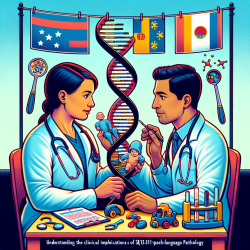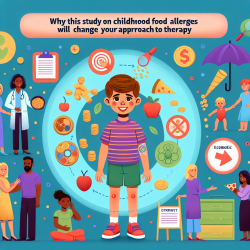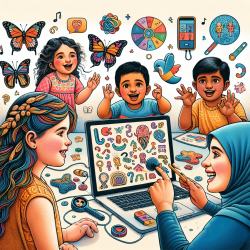Introduction
In the wake of the COVID-19 pandemic, communities across the globe have faced unprecedented challenges. The research article titled A Look at the First Quarantined Community in the USA: Response of Religious Communal Organizations and Implications for Public Health During the COVID-19 Pandemic offers critical insights into the role of community organizations in managing public health crises. This blog explores how practitioners, particularly those involved in online therapy for children, can leverage these findings to enhance service delivery and outcomes.
Understanding Community Trust
The study highlights that community organizations were trusted more than federal or state agencies for COVID-19-related information. This trust was built through tangible support, social connections, and clear communication. For practitioners providing online therapy, understanding the dynamics of community trust is crucial. Establishing trust with clients and their families can significantly enhance engagement and therapy outcomes.
Implementing Research Outcomes in Practice
Practitioners can draw on several key findings from the research to improve their practice:
- Build Trust Through Communication: Just as community organizations provided clear and consistent information, therapists should ensure that communication with families is transparent and regular. This includes setting clear expectations, providing updates on therapy progress, and being available for questions.
- Leverage Community Resources: Collaborate with local community organizations to provide comprehensive support to families. This could involve sharing resources, co-hosting informational sessions, or integrating community leaders into therapy sessions to enhance cultural relevance and acceptance.
- Address Stigma and Anxiety: The study found that stigma significantly contributed to distress and anxiety. Practitioners should be sensitive to these issues and incorporate strategies to address them within therapy. This might include providing psychoeducation about stigma, fostering resilience, and promoting positive identity development.
Encouraging Further Research
The research underscores the importance of community dynamics in public health responses. Practitioners are encouraged to engage in further research to explore how these dynamics can be harnessed in online therapy settings. Questions to consider include:
- How can online therapy platforms be adapted to better incorporate community resources?
- What role can community leaders play in enhancing therapy engagement and outcomes?
- How can therapy practices be tailored to address specific community concerns, such as stigma?
Conclusion
As the field of online therapy continues to evolve, integrating insights from community-based research can enhance the effectiveness of interventions. By building trust, leveraging community resources, and addressing stigma, practitioners can create more supportive and effective therapy environments for children and their families.
To read the original research paper, please follow this link: A Look at the First Quarantined Community in the USA: Response of Religious Communal Organizations and Implications for Public Health During the COVID-19 Pandemic.










